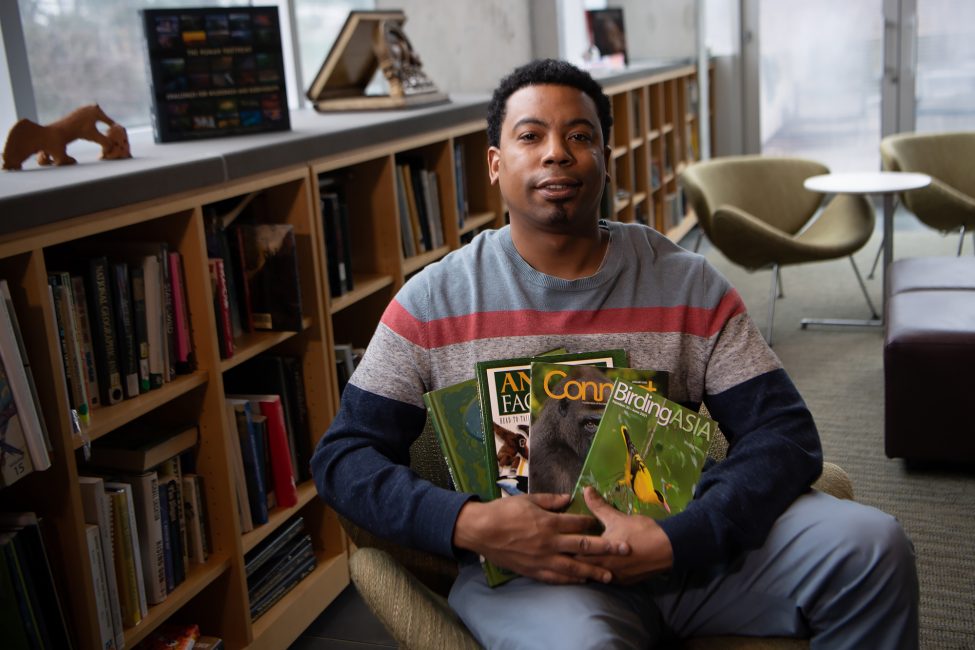
February 9, 2023
Changing Narratives on Nature: Louis Bankston
- as seen by -
 Julie Larsen
Julie Larsen
Black History Month is a time to reflect on achievements by African Americans, embrace equality, and inspire future generations.
Lou Bankston is Grants Manager in the Wildlife Conservation Society’s Education Department. He oversees corporate, government, individual, and foundational funding.
We spoke about some highlights of his role in education and conservation.
JL: How did you find your way to a career at WCS?
LB: Before WCS, I worked in academia while earning my MBA in Marketing and International Business. After finishing my studies, I began consulting work in tourism and found it had awoken my lifelong appreciation of nature and my passion for human development. Thanks to partnering with WCS during my consultancy and learning about WCS’s conservation efforts, I decided to apply. I have always been enthusiastic about WCS. I have been a lifelong visitor to the Bronx Zoo. I remember coming on field trips as a child and being absolutely thrilled when I saw the gorillas.
As a Grants Manager in the Education Department, a lot of my work includes writing and administration, however, the hands-on aspect of delivering our programming is the highlight for me. From doing beach clean-ups at Coney Island Creek with local youth to planting dune grass near the boardwalk at Brighton Beach, getting my feet wet and hands dirty is something I truly enjoy. Being a part of our department’s wider impact within New York City and beyond is a fulfilling experience.
JL: Describe your typical workday.
LB: My workdays can vary. Since I manage grants at all five WCS parks in New York City, I’m often called to different locations, and a change of scenery is always welcomed. When not in the office creating proposals or pulling reports together for funders, I try to take time to enjoy our zoos and aquarium so that I have a constant reminder of the importance of our work.
JL: Any anecdotal moments from your work at WCS?
LB: Besides countless up-close animal encounters, I’d say the moments that stick with me the most are the ‘Woo-hoo’ ones when funding has been secured. Recently, our Education Department secured a $300,000 grant from US Congressional Representative Hakeem Jeffries. This program, called IMPACT (Inspiring Marine Protection and Careers for Teens) will prepare teachers and youth from 15 Title I high schools for the green STEM careers on our horizon. New York State is on track to become the epicenter of the United States offshore wind industry and youth from under-resourced communities in New York City are critical assets to this growing job sector. IMPACT will empower youth to recognize the strength of their contributions in shaping the sustainable future of our city and engage them in building the knowledge and skills to pursue these careers. Securing this grant was a long process that involved a lot of collaboration with my colleagues in my department as well as our New York Seascape program. We are in the midst of delivering this programming and are happy to play a part in training the next generation of professionals.
Oh, and I must not forget that since I began working at WCS, I have become an avid birder and even joined a social group called Outdoor Afro! Black folks getting out, enjoying, and learning about nature is what I’m all about. So many of us have migrated to large cities over the generations. The result is that we don’t view activities like birding, hiking, and enjoying the outdoors as things we do. I’m happy to be a part of changing views and narratives about Black people and nature.
JL: What does Black History Month mean to you?
LB: Historically, Black contributions have been overlooked and often erased from history, both here in the United States and abroad. Black History Month not only gives Black folks the opportunity to learn about and celebrate our contributions but also gives everyone an opportunity to be a part of a collective strive for social equality and justice.
JL: What advice would you give the next generation on conservation and a career like yours?
LB: I would say that conservation is becoming more important for each generation going forward. This means that human dependence on our environment has become a more vital issue, and that conservation will shape economies and the way we live. Pursuing a career in conservation not only allows you to take part in this but also to make a living in a growing and rewarding field.
Nikon D6
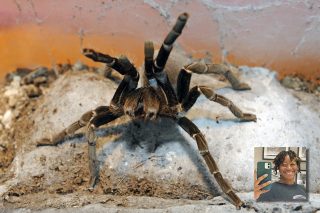
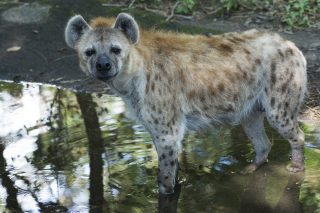
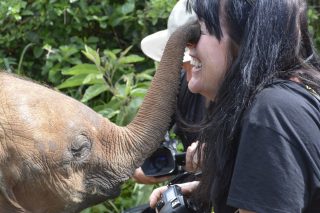
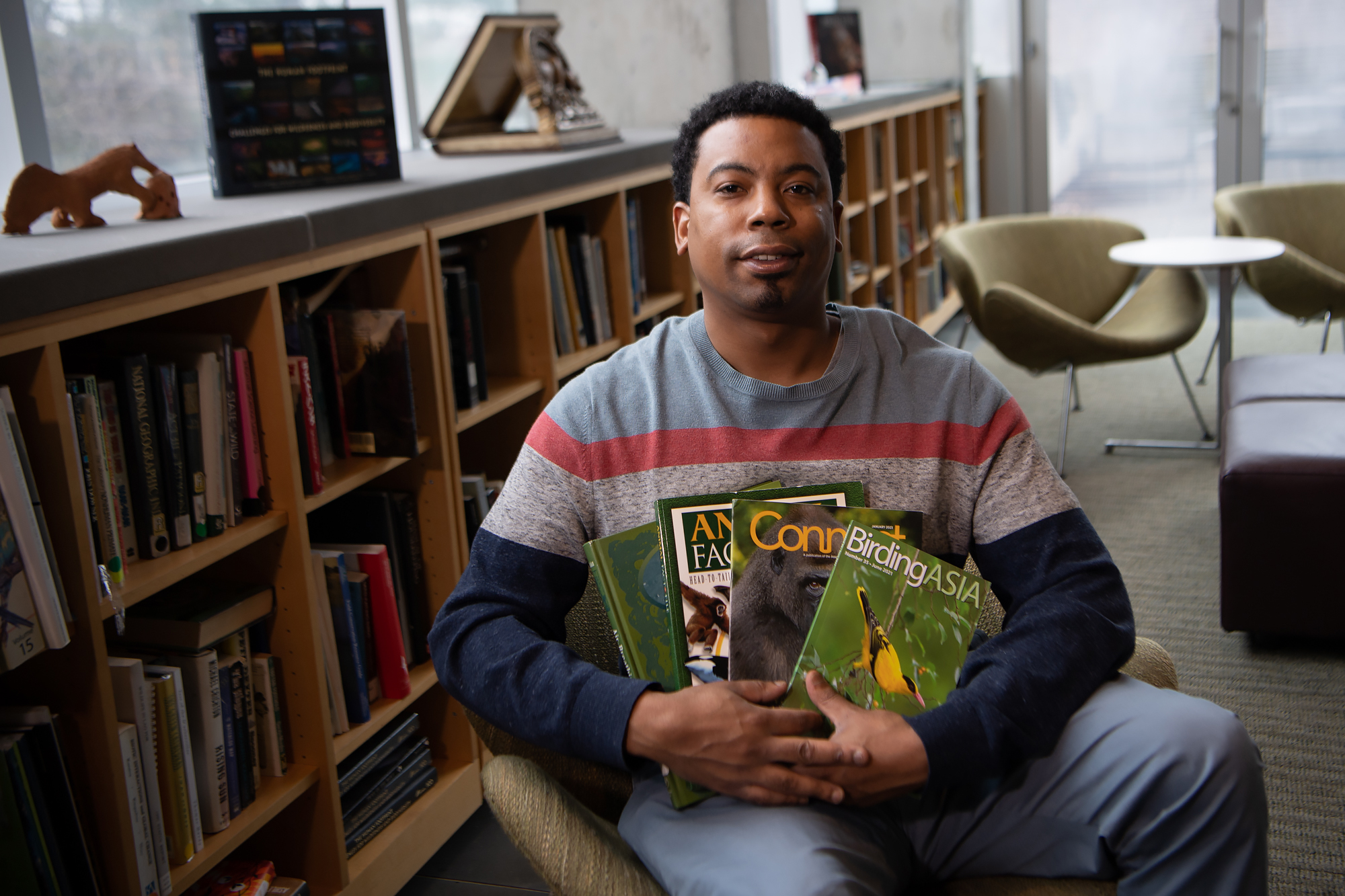
Comments